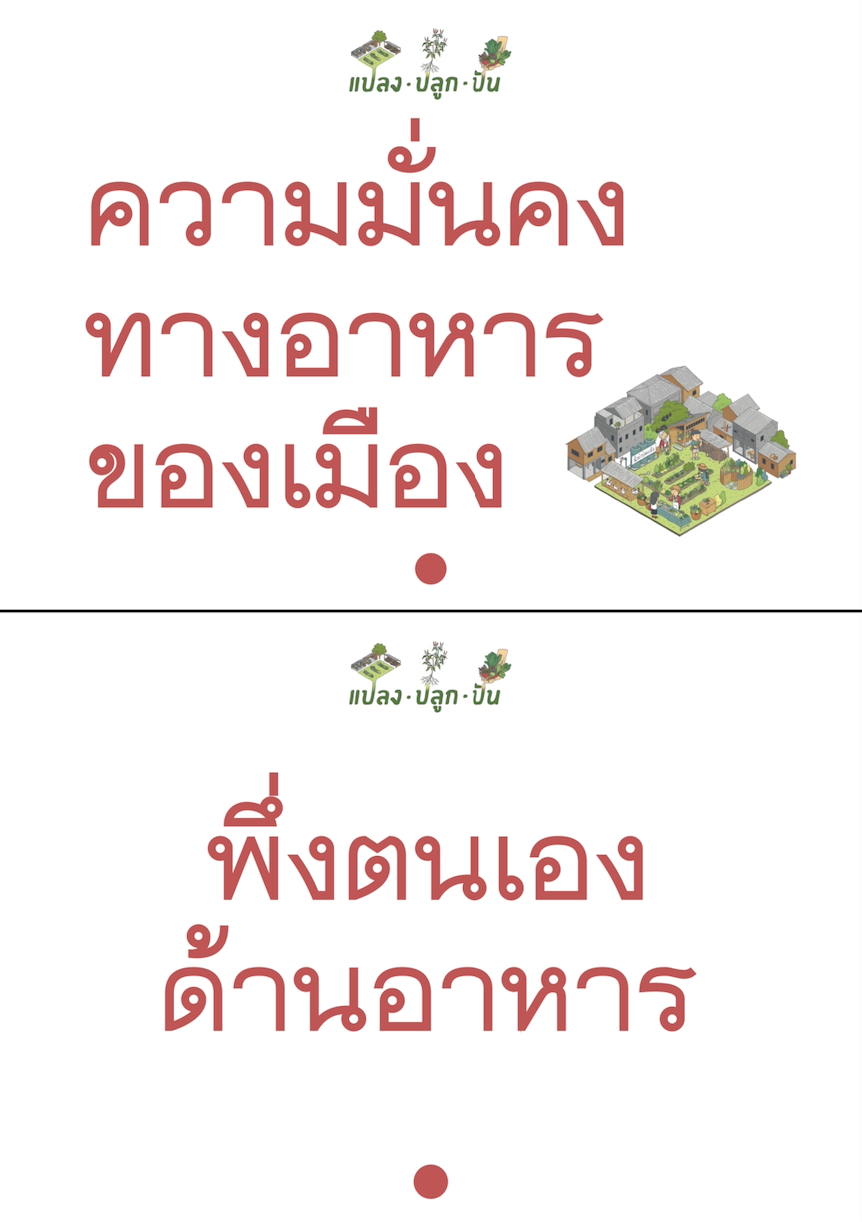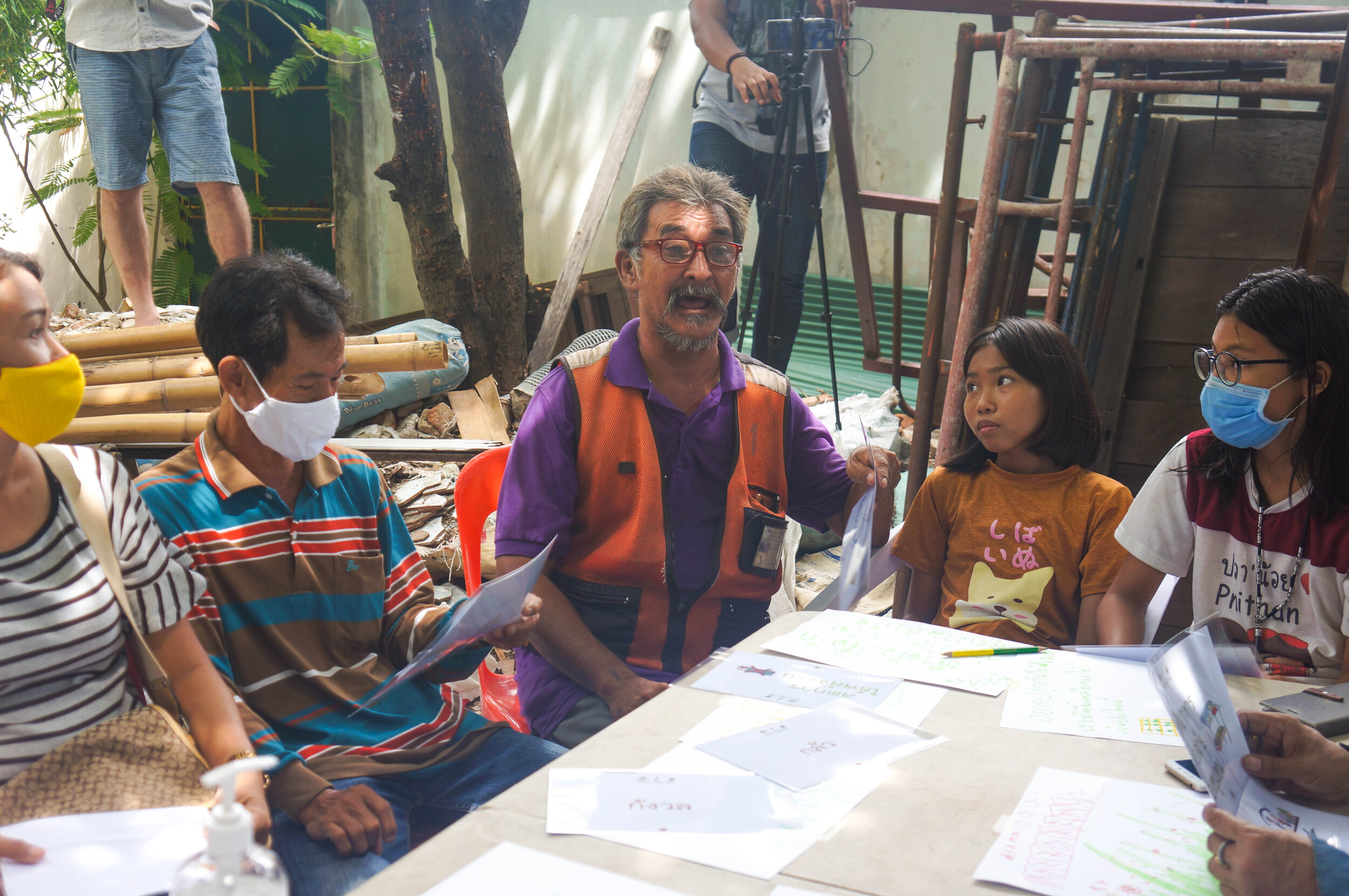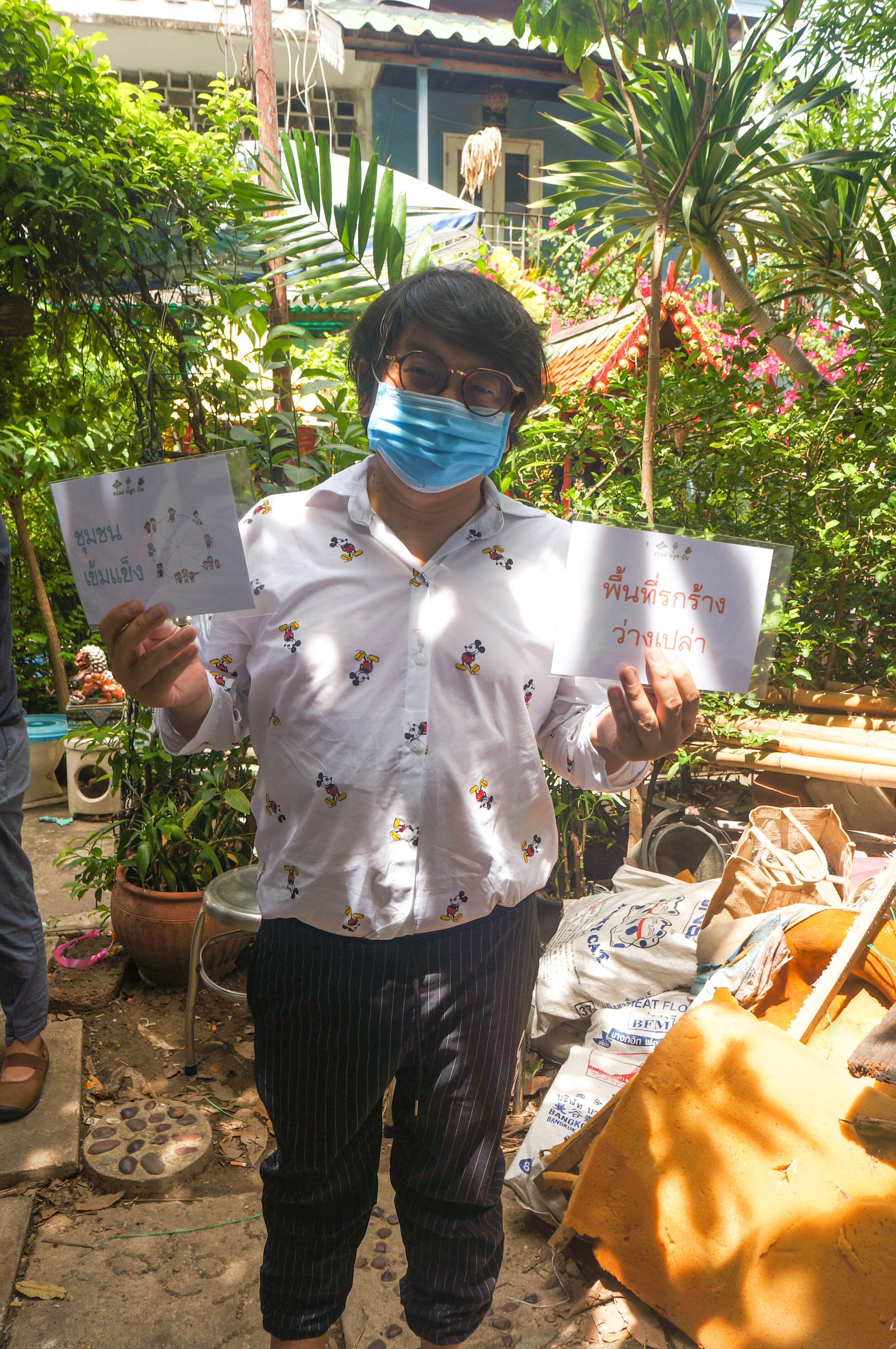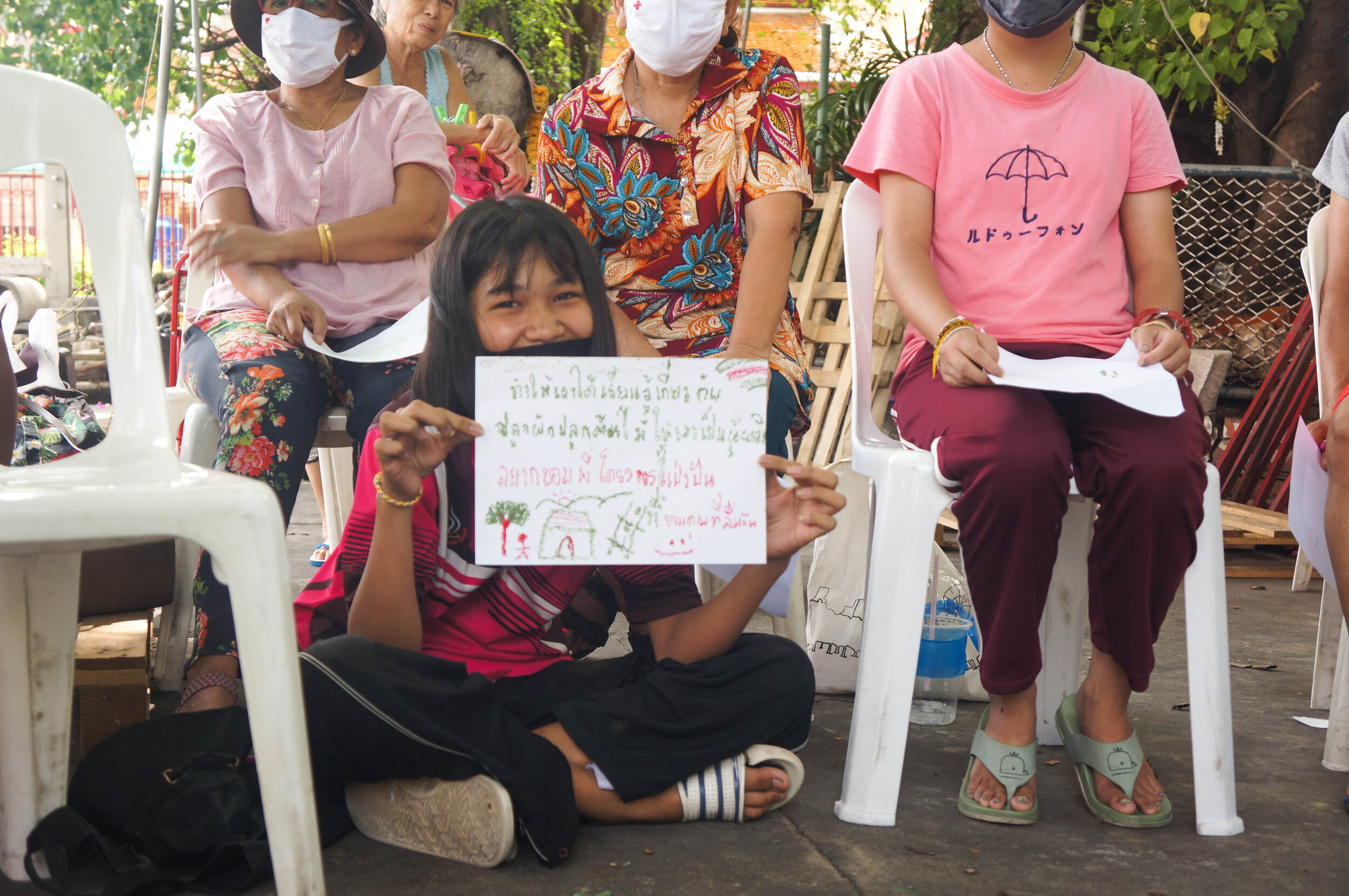Project name: The Plot Grow Share Knowledge Tool
Funder/Sponsor: City Farm Network
Collaborators: City Farm Network
Year: 2020
Project type: Knowledge management; urban farming; sustainability; food security; graphic information; Community Toolkit Design; Game design
Background
In 2020, as a response to the Covid-19 pandemic, the City Farm Network in Thailand launched the “Plot Grow Share” (Plang-Plook-Pun in Thai) project for vulnerable communities, focusing on those worst affected by the outbreak: people who have lost their jobs or have been otherwise affected, elderly people, people with disabilities, chronically poor people. This project was devised as a coping strategy for people with limited access to opportunities.
As part of the Plot Grow Share project, the City Farm Network aimed to provide a seed farm to 30 communities in Thailand to grow food in 100 sqm plots. Openspace designed a simple toolkit to help people design their plot and express their needs.
The Plot Grow Share Toolkit
The toolkit is designed as a quick exercise to break the ice during the workshops and to introduce the project’s objectives to the participants. With a runtime of about 30 minutes, it is quick and easy to understand.
The participants are presented with cards that contain key words derived from the Plot Grow Share project objectives to explain why we are promoting urban farming during this time. Some examples of the key words are “family, community, job-less, neighbour, safe food area, access to good food, city food security, reducing expenses, healing, empty land, city farm, self-reliant, green space, fear, worries, ways to survive, alternative, crisis, strong community, supporting, sharing, industrial food, reducing use of energy”. The key words can hold both positive and negative connotations.
The first step is guided introspection: all participants spend 12 to 15 minutes together with their eyes closed. They are asked to connect with themselves, reflect on why they have gathered here together and why it is important to be part of the seed farm. They then each make quick drawings and talk about their thoughts and dreams.
For the second step, the participants pick two cards each and are asked to relate to the keywords and to think about how the two cards relate to one another. For example, a participant picked the word “fear” and the phrase “green space” and he can say “I lost my job because of Covid and I am experiencing a lot of fear as I might not have a job to go back to. I can maybe work on this green space which is now unused, as food and providing for my family are the most relevant things to me right now”.
The project is thus broken down in smaller parts and words that are easy to understand and relate to. This process also helps to remind them and allow them to keep front of mind what their needs are and what they hope to get out of this farm.
Disseminating the toolkit
In mid-June 2020, the City Farm Network run two pilot project in two Bangkok communities where we showed them how to facilitate the 30 minute workshop. After that point, the City Farm Network facilitators can run the workshops and use the toolkit with no external help from the team at Openspace.


































































































